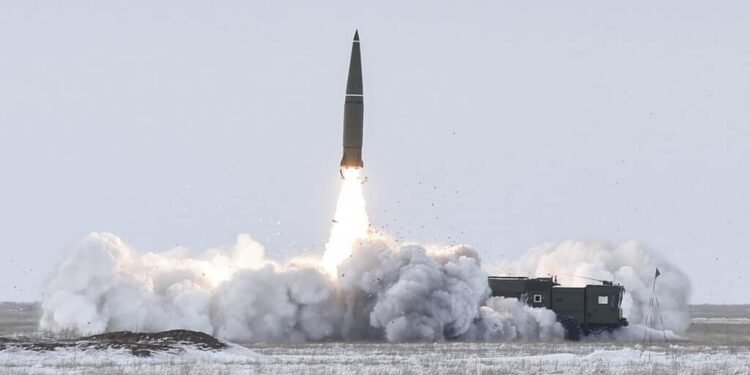Brussels (Brussels Morning Newspaper) – It is insanity, to put it mildly, for the world to be so unconcerned about the possibility of a nuclear tragedy today. Western analysts have played down the likelihood that the Ukraine conflict would result in a nuclear escalation between Russia and the West over the last several months. Since Putin originally placed Russia’s nuclear weapons on alert in February, many analysts have claimed that he was bluffing to throw his “adversaries off balance.” Let’s talk about is nuclear war now inevitable or not.
Scenarios of Nuclear War – Is nuclear war now inevitable
Nothing is certain, and very little can be predicted regarding battle. But the conflict in Ukraine is heading in a certain direction, which observers can see and which we should call out. What started as an illegal act of aggression committed by Russia against Ukraine has evolved into a proxy war between the United States and Russia.
The two groups are currently mired in an escalatory cycle that, if current trends continue, will eventually bring them into direct conflict with one another, which will then escalate to a nuclear level, resulting in the deaths of millions of people and the destruction of a large portion of the world. This is, without a doubt, an audacious forecast, and it is, without a doubt, a foolish one to make, in part because even if I am correct, it is quite improbable that I will be around to claim credit for it.
President Joe Biden’s Statement about Nuclear War
It would seem that Vice President Joe Biden has mentioned this threat, even though he has received a great deal of criticism for doing so because he feels that naming the threat raises the odds of preventing such a tragic conclusion. A lot can be done to alter the course that things are now on, but to do so will take conscious activity on both sides expressly aimed at avoiding direct conflict. At this point, it does not seem that either side is willing or politically able to take such moves. On the other hand, nuclear dangers are a crucial component of the Russian military’s overall strategy for waging war. Commentators in the United States are quick to criticise anybody who even mentions this threat out of concern that it would lessen the determination of Western nations. On Twitter, where the year is always 1938, the mere mention of such issues will always result in charges of appeasement and comparisons to Neville Chamberlain.
Russia’s Invasion of Ukraine
The revival of the nuclear arms debate may be attributed to Russia’s invasion of Ukraine and its threats to use nuclear weapons against the West. None of the world’s nine countries currently possessing nuclear weapons was among the 86 nations that signed a convention at the United Nations in 2017 that would explicitly prohibit such weapons. How can these governments rationalise the possession of weapons that jeopardise the safety of the whole human race?
That is an important point, but it has to be looked at in conjunction with another one: if the United States were to sign the pact and get rid of its weapons, would it still be able to prevent future Russian aggression in Europe? If the answer is “no,” another question that must be asked is whether or not a nuclear war is inevitable.
A study concluded in 1960 that a nuclear war would take place within the next decade and that it was “a mathematical certainty.” Although this may have been an exaggeration, many people felt that Snow’s forecast would be correct if a conflict broke out over the next hundred years. In the 1980s, activists for nuclear disarmament, such as Helen Caldicott, reiterated Snow’s warning that the proliferation of nuclear weapons “will make nuclear war a mathematical inevitability.”
Read More: Most Guarded Places Where UK Nuclear Weapons Are Kept
Conclusion
In the last two decades, nuclear war has consistently been among Russians’ top foreign worries. Is nuclear war now inevitable? In 1999, 28.7% of respondents said they believed a third global war was imminent, and that number has only increased since 1996. Since then, anxiety has increased, with over half of adults reporting feeling worried about something in 2019. And yet, neither the Russians nor the Americans have made any real attempts to find a resolution to this problem. World leaders have high aspirations for nuclear disarmament, but few are willing to make the changes in international politics necessary to make it a reality.




